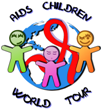Overview of outreach team activities
 Health is a
birth right for everyone, hence TASC found it necessary to reach out to
individuals and families at grass root level in the
rural communities. This program focuses on mitigating the impact of HIV and
AIDS. Traveling to communities is not an easy
thing to do but the positive impact that we see in communities keeps us going.
Health is a
birth right for everyone, hence TASC found it necessary to reach out to
individuals and families at grass root level in the
rural communities. This program focuses on mitigating the impact of HIV and
AIDS. Traveling to communities is not an easy
thing to do but the positive impact that we see in communities keeps us going.
2007, was a
hectic year for the outreach team, HIV/AIDS brought a paradigm shift in our
interventions, fortunately, the new TASC strategic
plan helped a lot in outlining the direction in which the TASC outreach unit
would adopt as well as helped us to recommit
ourselves to our cause. We had to plan our interventions in a way that they had
optimum impact in the communities,
and this called for the creation of community profiles. This included,
assessing the needs of each of the communities
visited by TASC as well as mapping out what other partners are involved with
those communities.
This process
enabled us to plan interventions that were tailor made for the communities.
Community Conversation Enhancement
Process (see below, CCEP) continued to help us understand the communities better through
assessing their knowledge on
HIV and AIDS issues, heir attitudes and practices. Through the CCEP we were
able to see the dynamics of the different
communities in terms of gender distributions, norms and practices as well as
identify gaps in knowledge which informed
future topics to be discussed through the CCEP.
Conducting home
visits have given us the insight on reality of the impact of the HIV and AIDS
pandemic on different families.
Through home visits we've been able to make more accurate assessment of the
family structure and home environment.
They have enabled us to identify both barriers and support systems to clients
which in turn helped us to implement the
necessary interventions to ensure active participation of the family members.
Target
The TASC
outreach program targets all persons within the rural communities that it
serves. In 2007, the team worked with the
following communities (our network's Map here):
 Lubombo:
Mahlabatsini, Ngcwaleni, Sibetsaphi, Maphungwane, Phuzamoya, Mbabala and
Manyovu.
Lubombo:
Mahlabatsini, Ngcwaleni, Sibetsaphi, Maphungwane, Phuzamoya, Mbabala and
Manyovu.
Shiselweni:
Sandleni, New Heaven, Qomintaba, Nsalitje, Godloza, Mfishane, Matsanjeni,
Lulakeni and Nyatsini
Manzini:
Nhlambeni, Nkamazi, Ekudzeni, Lushikishini, Nkiliji, Timbutini, Ngculwini and
Velezizweni.
Details of outreach team are available on page 20 of our report, here.
Community mobilization
TASC counselors
work very closely with Community Based Peer Educators (CBPEs, there roles and profiles below). TASC trains a
number of CBPEs each
year. Most of the communities visited by TASC have them; these educators play a
huge role in supplementing
the work of TASC counselors (Task Shifting). They further play the role of
mobilizing the community for when the TASC
team will be visiting. These CBPEs have constant access to TASC services. The
outreach team visits each community
once a month on regular scheduled basis.
As a result a majority of our clients
come voluntarily to the site for testing and counseling (Client Initiated HTC)
while some are referred by either the clinic, or any other health work (Provider
Initiated HTC), for instance, in 2007; 10.34% (n = 120) of the 1161 clients who
came for HIV testing and counseling were
referred to the TASC VCT/HTC service.
Community conversation enhancement process (CCEP)
Before
counseling and testing commence, the counselors and the people at the outreach
site engage in a Community Conversation Enhancement
Process (CCEP), whereby a topic is discussed and each community member present
has the platform to raise his/her views on the topic. It is not the counselors
giving information but
everyone is part of the process of learning where myths are dispelled, misinformation
is corrected and problems solved.
The premise is
that when everyone is part of this process of exchange of information then
people are less defensive and
more receptive to learning new things which might possibly lead to behavior
change andmaintenance of
that change. In each community different topics are discussed with each visit Conducting HIV
and AIDS education using community conversations has enabled the TASC team to
pass valuable
information to clients without making them feel as though the information is
being shoved down their throats.
This process allows for everyone to be part of the conversation thereby
creating a safe environment for
people to ask questions which they would otherwise be afraid to ask when put in
a spot light. This process
also allows for the assessment of knowledge of the people in a community in
order to prepare education
sessions for the next visit. After these community conversations, then HIV
Testing and Counselling
takes place.
 Health is a
birth right for everyone, hence TASC found it necessary to reach out to
individuals and families at grass root
Health is a
birth right for everyone, hence TASC found it necessary to reach out to
individuals and families at grass root Lubombo:
Mahlabatsini, Ngcwaleni, Sibetsaphi, Maphungwane, Phuzamoya, Mbabala and
Manyovu.
Lubombo:
Mahlabatsini, Ngcwaleni, Sibetsaphi, Maphungwane, Phuzamoya, Mbabala and
Manyovu.